"Horses and people mixed up in a heap": the terrible fate of wounded soldiers in the Battle of Borodino
Categories: History
By Pictolic https://pictolic.com/article/horses-and-people-mixed-up-in-a-heap-the-terrible-fate-of-wounded-soldiers-in-the-battle-of-borodino.htmlThe general battle of the Patriotic War of 1812 near Borodino has been described and praised by hundreds of historians, poets and writers. But behind the brilliant descriptions of the battle lies a lot of terrible, bloody and foul-smelling details that are all omitted or mentioned in passing. In addition to almost 90 thousand killed in battle, there was a huge number of wounded. What was their fate and what were their chances of receiving medical care and surviving?
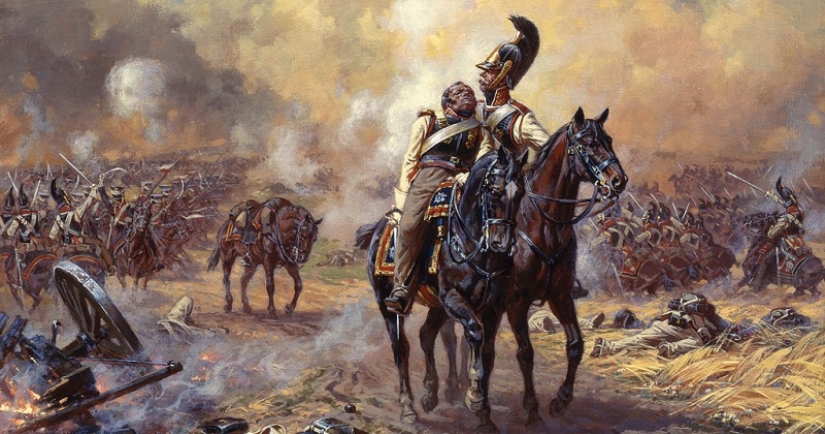
Despite the fact that the Russian troops defended and the French attacked, the losses of our troops were higher. The French lost 35-40 thousand in battle, and the Russians — 40-45 thousand killed. The cleaning of the bodies of the dead took place only in 1813, and according to the surviving documents, 67 thousand human bodies and 36 thousand horse corpses were collected on the battlefield.
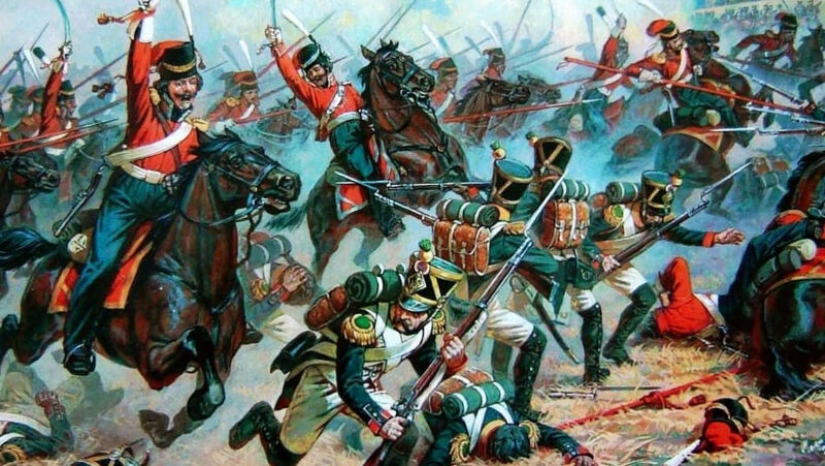
No one knows how many dead were not found and how many bodies were dragged away and eaten by wild animals. Contemporaries described that after the battle for almost two weeks on the field at Borodino, packs of wolves freely feasted, of which there were plenty near Moscow at that time. In 1818, human skulls were still white in the grass, which no one was interested in anymore.
It is interesting, but in "civilized" Europe, the bodies of the dead were also treated not too reverently. After the equally famous Battle of Waterloo, teeth were pulled out from the corpses of fallen soldiers to make dentures out of them, and this was the only tribute to their merits before the motherland. The fate of the bodies themselves also worried few people — ordinary soldiers were dumped into pits that became mass graves and buried.
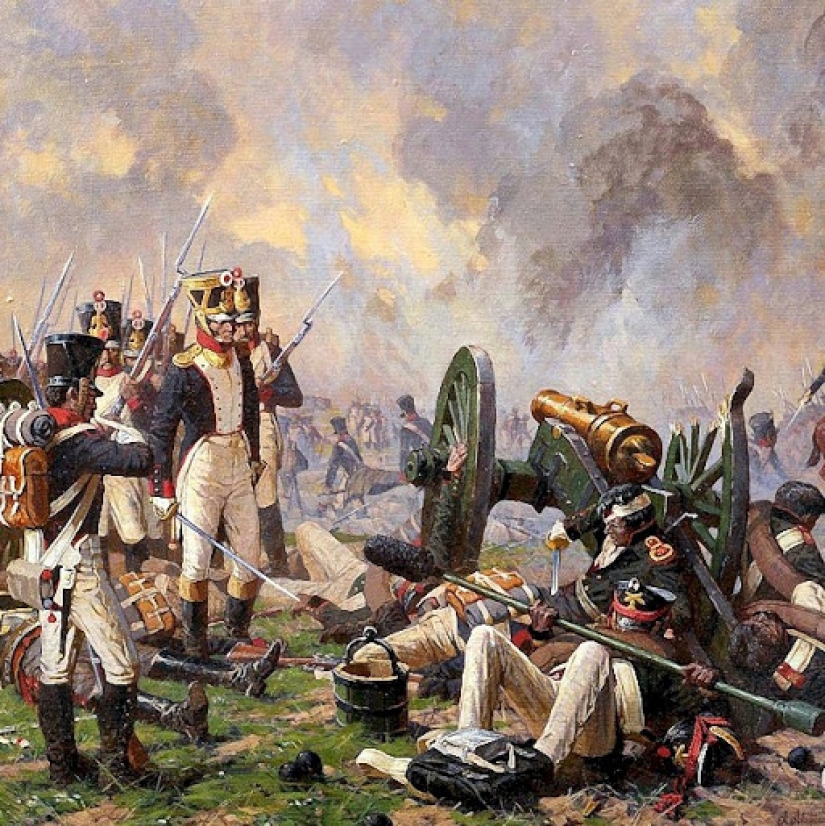
If everything is more or less clear with the dead, then we can hope that the wounded were treated humanly. Unfortunately, the soldiers who were wounded in battle were not given more attention than their dead brethren. How did the Russians solve this problem? Traditionally— nothing. The doctors, who were plentiful at the beginning of the battle, towards the end of the battle, when their help was especially needed, announced that they were tired and left almost in full force for Mozhaysk.
The principle of "help yourself" reigned on the field of the Battle of Borodino. While the army was in its positions, two signal fires were burning in the field on the hills, to which everyone who could move independently went out. Several doctors and compassionate volunteers who remained faithful to duty were on duty near the lights, who hastily bandaged people and ... pointed them in the direction where to move on.
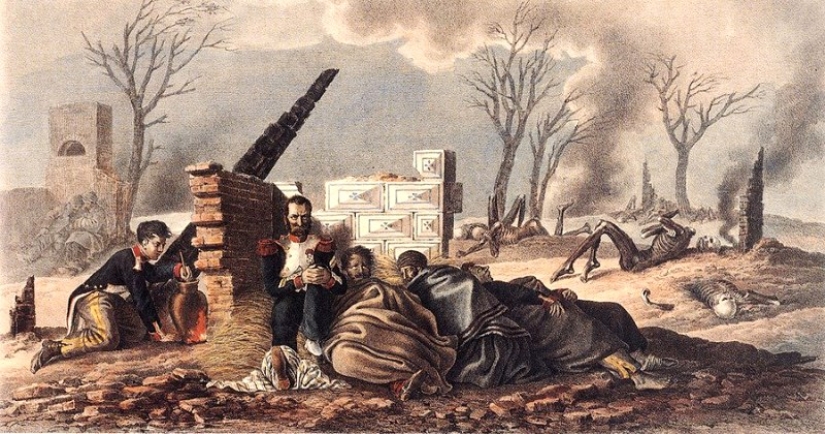
That's right — the wounded had to walk independently along the Mozhaisk road to the rear. Horse-drawn carts were not allocated for evacuation, as few horses survived and all of them were used to transport army equipment and officers.
Therefore, everyone who could walk, hobble or crawl, moved to Mozhaisk, covering the road and roadsides with their bodies. Those who could not move independently were not thought of at all. The French recalled that living Russian soldiers were found on the battlefield even a week after the battle. The most terrible was the first night after the battle — there was a continuous cry of the dying over the field. Gradually, people ran out of strength or died, and by morning it was almost quiet.
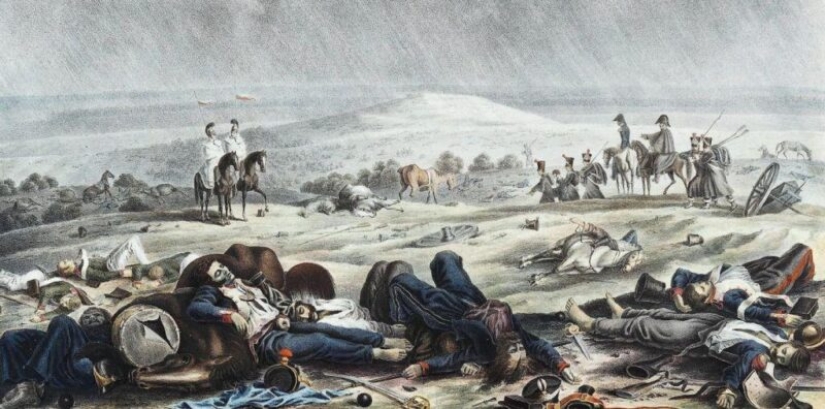
No less a nightmare was happening on Mozhaiskaya road. It was paved with bodies crushed by carts and artillery pieces. During the mass withdrawal of troops, no one dismantled the tracks and the wheels were grinding not only corpses, but also living people. Along the road, corpses not only lay, but also sat down — some of the wounded sat down, having lost their strength, and could no longer stand up.
In Moscow, according to various sources, after the Battle of Borodino there were from 15 to 20 thousand wounded. No one was going to take them and they were left to the French. Russian Russian and French sources claim that almost all of the Russian soldiers left at the mercy of the enemy died in the Moscow fire.
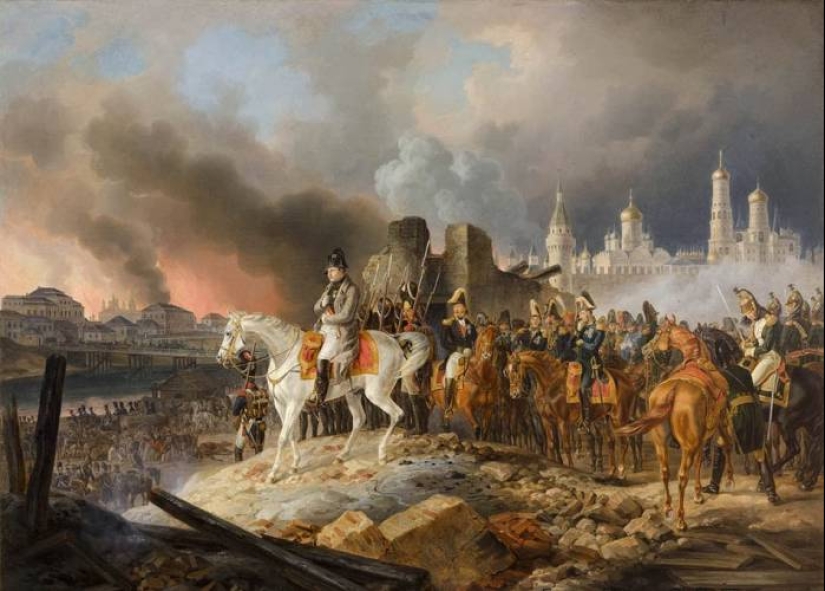
But why did the French, who became the formal winners, according to their custom and according to the noble rules of that era, not take care of the defeated enemies? The fact is that the Battle of Borodino was such a serious shock for Napoleon's army that many soldiers did not even greet their emperor and were in an extremely depressed state.
Instead of warmth, comfort, rest and satiety, the French were met by a half-empty and burning Moscow. The occupiers were demoralized and they were primarily interested in saving their own skins and exporting the looted property. Therefore, no one paid attention to the wounded enemies burning alive.
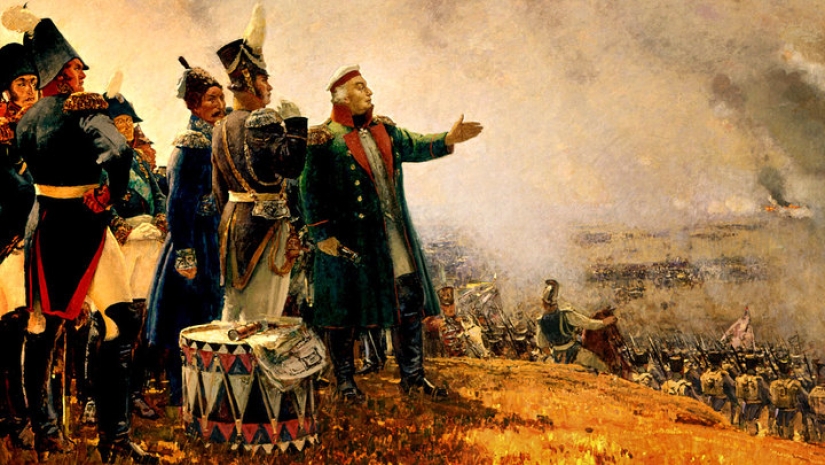
How did the Russians look at Kutuzov's attitude to the wounded, because the field marshal, in fact, abandoned his soldiers twice — on the battlefield, and those who managed to escape themselves, already in burning Moscow? As always, the military commander's act was easily justified by higher goals, for example, saving a combat-ready army. Mikhail Illarionovich has never heard any reproaches about this.
But his contemporaries did not forgive him for the surrender and arson of Moscow — for a long time after Borodino Kutuzov moved in a closed carriage and heard whispering behind his back. Such were the times — human life was a penny, but for the shrines and the idea it was supposed to lay the bones. Has anything changed much since then?
Recent articles

We present you a selection of amazing beaches — but today these are not standard holiday destinations, but really unusual places. ...

Aerial photographer cronista johnny Miller demonstrate dramatically the gap between rich and poor in cities of South Africa, Mexico ...

On April 22, 1923, Bettie Page was born in Nashville, who became a sex symbol throughout the country in the middle of the century. ...